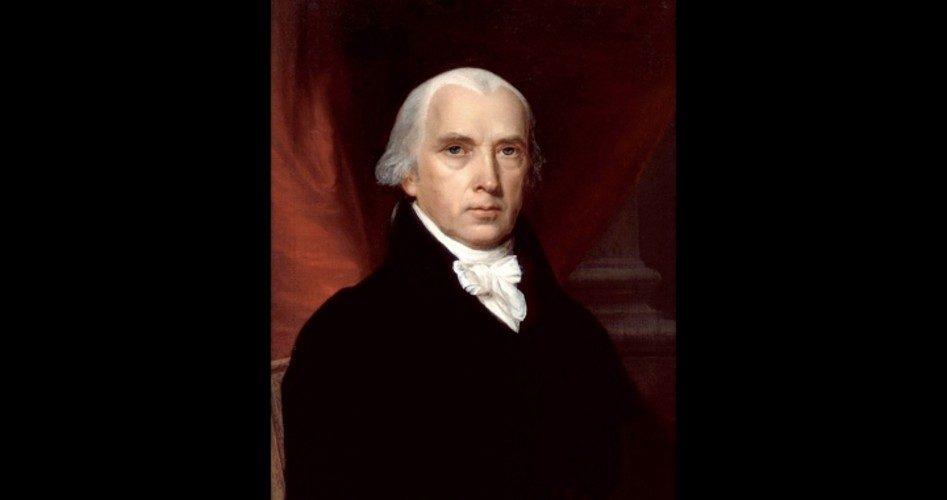
While the federal government’s bureaucracy is blossoming again thanks to the financial fertilizer spread by Congress and the president, the deadline to avoid another “shutdown” threatens to stunt that growth. If Capitol Hill and the White House can’t come to some agreement before February 15, then the government — well, a whopping seven percent of it — will be “shut down” again. Gasp!
While there are those along the entire spectrum of political philosophy who insist that President Trump need only use the “stroke of a pen” to get a border wall built, even many of his fellow Republicans are counseling the president not to get involved in another funding fisticuffs with Congress, seeing as how the last one left the president’s power weakened in the eyes of many, including many of his allies.
And that’s how it should be.
That’s right — when it comes to taxing and spending the wealth of the people of the United States, the president’s constitutional role is practically perfunctory compared to that of the Congress.
With a hat-tip to historian Greg Weiner, associate professor of political science at Assumption College and contributing editor of Law and Liberty, I will now provide you with the identification of the real winner of the “shutdown” showdown. Spoiler alert: It wasn’t Speaker of the House Nancy Pelosi and it wasn’t Senate Minority Leader Chuck Schumer. And, as I already pointed out, it wasn’t President Trump. It was a president, however: President James Madison!
James Madison came out on top in the scramble to capture the funding flag. Of course, this is going to make some people cringe, as they come to realize that by saying James Madison won, I’m saying Congress won, and by saying Congress won, I’m saying Nancy Pelosi won, and that just isn’t acceptable!
I’d ask you to remember, though, that I already pointed out that Pelosi didn’t win, as such. Her personal views of politics are about as far removed from those of James Madison as anyone’s could be. She’s a champagne socialist with a repeatedly demonstrated disdain for the Constitution, limited government, and the consent of the governed. Nancy Pelosi the politician certainly did not best Donald Trump; Nancy Pelosi is a member of the people’s branch of the federal government that effectively asserted its intended constitutional supremacy in matters concerning the people’s money.
Here’s how Weiner explained it:
Constitutional conservatives in particular should take care not to be distracted by the fact that Pelosi, who is certainly no originalist, prevailed. The relevant point is that Madison did. He predicted that Congress would be the locus of power in the regime and that the House, in turn, would be the fulcrum inside the Congress. Madison also assumed — emphasis on “assumed”; politics did not make sense to him otherwise — that members of each branch would behave institutionally rather than ideologically, defending power before party: They would, in other words, care more who built a wall than whether it was built. In this sense, the precise contours of Pelosi’s constitutional views are less important than the fact that she behaved in her institutional interest, the spring that powers the regime.
In order to prove how Madison, specifically, and all friends of the Constitution, generally, won the budget battle, I’ll present here a few statements directly on the point spoken by James Madison himself.
“The House of Representatives cannot only refuse, but they alone can propose, the supplies requisite for the support of government.”
“The accumulation of all powers, legislative, executive, and judiciary, in the same hands, whether of one, a few, or many, and whether hereditary, self-appointed, or elective, may justly be pronounced the very definition of tyranny.”
“This power over the purse may, in fact, be regarded as the most complete and effectual weapon with which any constitution can arm the immediate representatives of the people, for obtaining a redress of every grievance, and for carrying into effect every just and salutary measure.”
“On comparing, however, these valuable ingredients with the vital principles of liberty, we must perceive at once, the difficulty of mingling them together in their due proportions. The genius of Republican liberty, seems to demand on one side, not only that all power should be derived from the people; but, that those entrusted with it should be kept in dependence on the people.”
“The magistrate in whom the whole executive power resides cannot of himself make a law, though he can put a negative on every law, nor administer justice in person, though he has the appointment of those who do administer it.”
That should be sufficient evidence to build a wall of proof (pun intended) that James Madison was the true winner in the battle to fund the federal government.
I’ll close with the encouraging summary of the conflict and its constitutional resolution written by Weiner:
For those who want a wall, the answer is to convince a persistent majority of Americans to support one. If they do, the public’s deliberate opinion will be reflected in either a House that strikes a bargain on the topic or in a change in control of the House in 2020. The constitutional regime is better at registering the views of this kind of enduring legislative majority than of a partisan coalition attempting to impose itself in 34 days.
That regime, not either party or either view on the wall, is what has just prevailed. A good test of constitutional sincerity would be whether those who wish Pelosi were not speaker of the house can nonetheless celebrate the fact, in a standoff with the president on an issue of authority, the Congress, and thus the Constitution, won.



